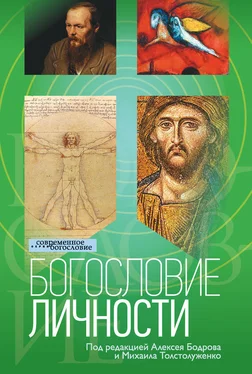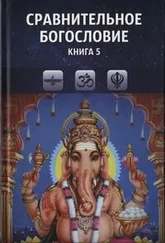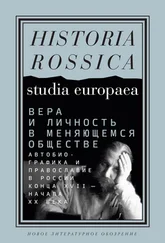Образ Бога (лат.).
Gregersen, Niels Henrik. 2010. “Radical Generosity and the Flow of Grace”. In: Word – Being – Gift , eds. Bo Kristian Holm and Peter Widmann. Tübingen: Mohr-Siebeck, 117–145.
В этом разделе я опираюсь на свою более раннюю работу, опубликованную в книге Человеческая личность в науке и богословии : Gregersen, Niels Henrik. 2000. “Varieties of Personhood: Mapping the Issues”. In: The Human Person in Science and Theology , eds. Niels Henrik Gregersen, Willem B. Drees, and Ulf Görman. Edinburgh: T & T Clark/ Grand Rapids, MI: Eerdmans, 1-17.
de Vogel, Christina. 1963. “The Concept of Personality in Greek and Christian Thought”, Studies in Philosophy and the History of Philosophy 2, 20–60; Engberg-Pedersen, Troels. 1990. “Stoic Philosophy and the Concept of Person”. In: C. Gill ed., The Person and the Human Mind. Oxford: Oxford University Press 1990, 109–137.
Богословско-историческая легенда (нем.).
Heinrichs, Johannes. 1996. “Person. Philosophisch”, Theologische Realenzyclopädie vol. 26, 220–225.
Engberg-Pedersen, Troels. 1990. “Stoic Philosophy and the Concept of Person”. In: C. Gill ed., The Person and the Human Mind. Oxford: Oxford University Press 1990, 109–110.
Ibid., 119.
Цит. по: Mahoney, John. [1987] 1990. The Making of Moral Theology: A Study of the Roman Catholic Tradition . Oxford: Clarendon Press, 221.
Pannenberg, Wolfhart. 1983. Anthropologie in theologischer Perspektive . Göttingen: Vandenhoeck & Ruprecht, 217–218.
Рус. пер.: Митр. Иоанн Зизиулас, Бытие как общение: Очерки о личности и Церкви . Предисл. прот. Иоанна Мейендорфа, М.: СФИ, 2006.
Zizioulas, John D. [1985] 1997. Being as Communion: Studies in Personhood and the Church , Crestwood: St. Vladimir’s Seminary Press, 34.
Ibid., 27.
Turcescu, Lucian. 2002. “'Person' versus 'Individual' and Other Modern Misreadings of Gregory of Nyssa”, в: Modern Theology , vol. 18, 527-40.
Grègoire de Nysse. 2000. Discours catéchétiques , R. Winling ed. ( Sources chrétiennes 453). Paris: Éditions du Cerf, 168.
Защита Зизиуласа Аристотелем Папаниколау в ответ на критику Турческу не ставит под вопрос эти находки. См.: Papanikolaou, Aristotle. 2004. “Is John Zizioulas an Existentialist in Disguise? Response to Lucian Turcescu” в: Modern Theology , vol. 20:4, 601–607.
Ayres, Lewis. 2004. Nicaea and Its Legacy: An Approach to Fourth-Century Trinitarian Theology. Oxford: Oxford University Press.
Zizioulas, John D. [1985] 1997. Being as Communion: Studies in Personhood and the Church , Crestwood: St. Vladimir’s Seminary Press, 17.
Сущность (греч.).
Ibid., 39.
Studer, Basil. 1982. “Der Person-Begriff in der frühen kirchenamtlichen Trinitätslehre”. Theologie und Philosophie 57, 177. Ср. Volf, Miroslav. 1998. After Our Likeness: The Church as the Image of the Trinity. Grand Rapids/Cambridge: William B. Eerdmans, 199.
Panagopoulos, Johannes. 1993. “Ontologie oder Theologie der Person? Die Relevanz der patristischen Trinitätslehre für das Verständnis der menschlichen Person”. Kerygma und Dogma 39, 2-30.
Zizioulas, John D. [1985] 1997. Being as Communion: Studies in Personhood and the Church , Crestwood: St. Vladimir’s Seminary Press, 50–65.
Ibid., 50; 52.
Ibid., 53.
Опасность гностицизма очевидна в таких фразах, как эта: «Личность как абсолютная онтологическая свобода нуждается в ипостасной конституции, лишенной онтологической необходимости, ее ипостась неизбежно должна быть укоренена или установлена в онтологической реальности, которая не страдает тварностью». Ibid., 54.
Ibid., 56.
Ibid., 57.
Ibid., 58.
Это центральный тезис Мюленберга: Mühlenberg, Ekkehard. 1966. Die Unendlich-keit Gottes bei Gregor von Nyssa. Gregors Kritik am Gottesbegriff der klassischen Metaphysik. Göttingen: Vandenhoeck & Ruprecht. Его находки были лишь незначительно модифицированы Гельджоном: Geljon, Albert-Kees. 2005. “Divine Infinity in Gregory of Nyssa and Philo of Alexandra”. Vigiliae Christinae (2005), 59: 243–261.
Ориген, О началах II.9.1: Naturaliter nempe quidquid infinitum fuerit, et inconpraehensibile erit . Также в: Против Цельса IV.63. Ориген утверждает, что зло есть нечто неопределимое. Напротив, Бог создал благое творение согласно с «числом и мерою» ( numero et mensura ), ср. Прем 11:21. Ориген интерпретировал «числа» как относящиеся к разумным существам, rationales creaturae или logikoi , в то время как «мера» была соотнесена с телесной материей, materia corporalis , как полем потенциальности для новых существ, устроенным божественным провидением для будущих нужд спасения.
Григорий Нисский, Большой катехизис, 6. Gregory of Nyssa. 1994 [1892], “The Great Catechisms”. In: A Select Library of Nicene and Post-Nicene Fathers. Second Series , eds. Philip Schaff and Henry Wace. Edinburgh: T & T Clark, vol. 5, 480. Греческий текст в: Grègoire de Nysse. 2000. Discours catéchétiques , R. Winling ed. ( Sources chrétiennes 453). Paris: Éditions du Cerf, 172.
Большой катехизис , 6. Ibid., 480 (греч. 174).
Большой катехизис , 27. Ibid., 497.
Большой катехизис , 25. Ibid., 494–495.
Большой катехизис , 27. Ibid., 496.
Читать дальше
Конец ознакомительного отрывка
Купить книгу










![Коллектив авторов - Вера и личность в меняющемся обществе [litres]](/books/431444/kollektiv-avtorov-vera-i-lichnost-v-menyayuchemsya-obch-thumb.webp)

